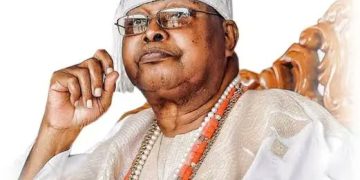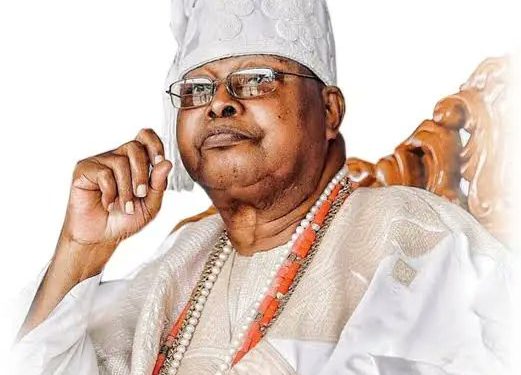The Fusengbuwa Ruling House, which is next in line to produce the new Awujale and paramount ruler of Ijebuland, has stated that the next monarch must be committed to preserving the revered customs and traditions of the Ijebu people.
Adedokun Ajidagba, the head of the ruling house, made this declaration during the traditional beating of the Gbedu drums—a significant ritual signaling the readiness of a ruling house to present a candidate for the throne. The event took place in Ijebu-Ode, Ogun State, on Thursday.
This comes in the wake of the death of Oba Sikiru Adetona, the late Awujale, who passed away on Sunday, July 13, 2025, at the age of 91 after a reign that spanned 65 years. He was laid to rest the following Monday at his private residence in the GRA area of Ijebu-Ode in accordance with Islamic customs. Military personnel reportedly prevented traditionalists from participating in the burial rites, a move said to have fulfilled the late monarch’s wish for an Islamic burial, as confirmed by Governor Dapo Abiodun.
The state’s recent law—titled the Obas, Chiefs, Council of Obas and Traditional Council Law of Ogun State, Bill 2021—seeks to modernize the practices surrounding the installation and burial of traditional rulers. However, the Islamic burial of the Awujale has sparked controversy among traditionalists who insist he should have been buried in line with longstanding cultural practices.
Ajidagba emphasized that whoever is selected to ascend the throne must respect and uphold the spiritual and traditional foundations of Ijebuland. “Our culture, which we refer to as Isese, must not be discarded. It is central to our identity and development,” he said. He also noted that the late Oba Adetona had instructed that the next king be chosen through the guidance of the Ifa oracle.
He called on the Ogun State Government to refrain from interfering in the selection process, asserting that only the traditional and spiritual processes should determine the next Awujale. “We have formally notified the state to stay clear of the selection process. It must follow due process without external influence,” he added.
Ajidagba stressed that the family would resist any attempts to impose wealthy individuals or political figures. “During his lifetime, particularly at the 2021 Ojude Oba festival, the late monarch warned against choosing a successor based on wealth or political connections,” he said.
The Fusengbuwa family head also affirmed that they are prepared to present a credible and worthy candidate from among the family’s princes. He appealed for unity among family members to ensure a fair and traditional process. “We have eight branches in our family, and there’s strong cooperation. Although a few outsiders are trying to interfere, we will not allow intruders to hijack this sacred process,” he said.
Ajidagba explained that Ijebuland has four ruling houses: Anikilaya, Fusengbuwa, Fidipote, and Gbelegbuwa. With the last Awujale emerging from the Anikilaya house, it is now the rightful turn of the Fusengbuwa lineage. He added that the Gbedu drum ceremony is a key cultural rite, signaling the initiation of the selection process for the next Awujale.
He also confirmed that in 2023, the Ijebu-Ode Local Government issued a certificate of affirmation to the Fusengbuwa Ruling House, further validating its eligibility to produce the next monarch.
Prince Adeleke Adeyemi, General Secretary of both the Fusengbuwa Ruling House and the collective four royal families, also spoke at the ceremony. He said he has maintained accurate records of the family for over two decades and emphasized the house’s commitment to presenting a qualified candidate. “Our family branches are united and committed to this process,” he noted, commending Prince Ajidagba’s leadership.
Chief Razaq Osimodi, the Olowa of Ijebu-Ode and Abore of Awujale, described the Gbedu ceremony as a vital tradition that signifies the rightful family to produce the next monarch. He expressed confidence that the Ifa oracle would guide the family to the most suitable choice.
Olaseni Ottun also highlighted the cultural richness of Ijebuland and encouraged collective unity in the quest to choose the next Awujale.














